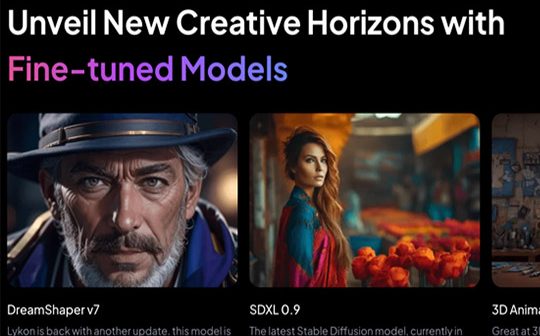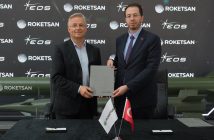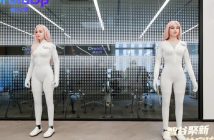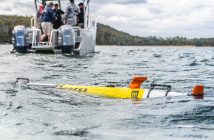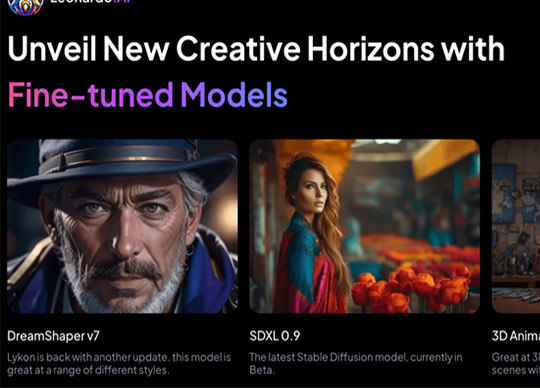
Amazon Web Services (AWS) has announced that Leonardo.Ai, an Australian generative artificial intelligence (generative AI) content production platform, is creating 4.5 million new images daily on the world’s most comprehensive and broadly adopted cloud.
Since launching in December 2022, Leonardo.Ai’s users have generated more than 700 million images, and trained more than 400,000 custom generative AI models, on the company’s platform.

The startup is changing the way content is created, allowing users globally to easily generate ideas and hyperrealistic images ranging from environments to portraits suitable for videos, games, and websites across industries, including gaming, media, entertainment, and marketing.
Leonardo.Ai also has one of the largest generative AI communities globally. It is the third most popular Discord channel with more than 1.8 million members.
Leonardo.Ai chose AWS to be its cloud provider due to a rapid influx of users, which its previous cloud provider could not accommodate. To maintain high performance along with a quality user experience, Leonardo.Ai was forced to introduce a waitlist to cap its organic growth.
To remediate this situation, the startup migrated its workloads to AWS in less than two weeks, and the resiliency, security, and scalability of AWS’s global infrastructure allowed Leonardo.Ai to efficiently manage the continuous surge in user growth. Using AWS’s world-class infrastructure, Leonardo.Ai users are unlocking creativity and accelerating content production from months to minutes.
To accelerate Leonardo.Ai’s global growth ambitions, the company is using Amazon Elastic Compute Cloud (Amazon EC2) Inf2 instances for low-cost and high-performance generative AI inference, as well as for running several large language models (LLMs).
Amazon EC2 Inf2 instances are powered by AWS Inferentia2, the second-generation AWS Inferentia accelerator. Using Inf2 instances, the startup achieved a 60% reduction in inferencing costs while accelerating their language model inference speeds by up to 35%.
“The generative AI space is evolving quickly, and AWS is helping us shape this industry with its technical support, business development, and mentorship. Our rapid growth is only possible by scaling our workloads on AWS to meet rising user demand. In less than a year, our users have generated an astonishing 700 million images on our platform. If you spent just one second looking at each image, it would take you over 19 years of non-stop viewing to see them all,” said Peter Runham, co-founder and CTO, Leonardo.Ai. “AWS also connected us with its vast network of innovative AI partners, which was vital for our growth. We’re currently exploring how Amazon Bedrock can help our customers’ diverse creative use cases.”
In May, Leonardo.AI was selected as the first startup in Asia-Pacific to participate in the global AWS Generative AI Accelerator, which provides promising startups up to US$300,000 in AWS credits to build and refine their offerings, mentorship from AI and machine learning (ML) industry leaders, networking opportunities, and technical support from AWS product teams.
Since going through the program, AWS has been core to the startup’s ability to scale internationally and rapidly. AWS also helped the Leonardo.Ai team manage AWS infrastructure, secure graphics card unit provisioning, and provide technical support that allowed the Leonardo.Ai team to focus more on expanding its capabilities and growing its user community.
“Australia is a nation that produces exceptional technology talent and we’re excited to be a part of Leonardo.Ai’s rapid growth,” said Bratin Saha, vice president of Artificial Intelligence and Machine Learning at AWS. “Leveraging Amazon Bedrock, Leonardo.Ai will be able to quickly experiment with a variety of foundational models from leading AI companies, driving a new era of creativity and expressive imagination. We look forward to supporting Leonardo.Ai on its mission to become a leader in the global generative AI content-creation industry, leveraging AWS’s world-class infrastructure and technology.”
To offer users additional flexibility, Leonardo.Ai recently launched an iOS mobile application, allowing users to easily use its platform to alter the style and tone of uploaded images on a mobile device. For example, an interior designer can upload a photo of a furnished room and use Leonardo.Ai to transform the room—modernizing the surroundings, changing the color scheme, or adopting a particular style using custom AI models or additional prompts from the designer.
Leonardo.Ai also created an API to meet the expanding demand for AI-generated production-quality images. The API allows companies to easily deploy Leonardo.Ai’s technology in their own software environments, integrate custom AI models, and perform advanced generative AI actions integrated into their own production suite.
The API also helps Leonardo.Ai deliver access to premium and exclusive content for its customers, such as purpose-built AI models that cater to specific needs, like brand and style guidelines from an advertising agency’s client.
In September, Leonardo.Ai integrated its API with its first enterprise customer, Razer, a Singapore-based leading global lifestyle brand for gamers, to deliver Axon Create. This tool empowers Razer users to create stunning high-definition wallpaper for their PCs on demand using generative AI.
“We wanted to allow our customers to easily personalize their gaming setups. Partnering with Leonardo.Ai was a natural fit when it came to Axon Create,” said Quyen Quach, vice president of Software at Razer. “For Gamers, By Gamers is our guiding principle for product development, and Leonardo.Ai’s ability to understand gaming language resulted in a seamless experience for our gamers to generate artwork that aligns with their specific interests.”


